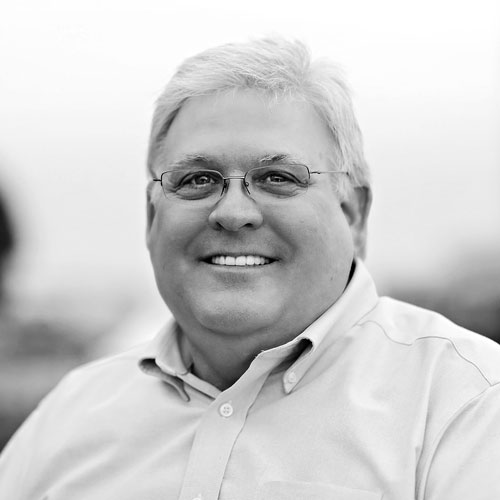With at least 80 percent of her career spent in the energy sector, Carla Howard, senior vice president and general tax counsel for Energy Future Holdings (EFH), understands the unique nature of overseeing the tax matters facing competitive and regulated energy companies.
EFH owns Luminant power plant operations in northern Texas, TXU Energy, and is the predominant owner of the Oncor business, which transmits and distributes electricity from power plants to customers.
“I have always lived in Texas, despite the worldwide location of my various work assignments. The energy sector is embedded in the fabric of Texas,” Howard says. “Working within and around the energy sector is as natural to me as being a native Texan.”
“Every dollar earned or invested by the business will generate a tax liability. Making sure we pay every dollar we are required to pay on everything we do—but not a penny more—is my job.”
In her role at EFH, Howard’s daily tasks are as divergent as the company for which she works. She wears a multitude of hats, from structuring business transactions to evaluating significant acquisitions and dispositions, from overseeing complex tax negotiations and litigation to developing executive compensation and benefit plans.
Regulatory issues facing the energy sector are a bit like playing Monopoly, whereby the public utilities that you buy always make a profit. “Utilities” in fictional Monopoly make money when regulators set their rates of recovery on investment and guarantee that if the company invests, the regulators will let them recover that money with a profit.
In the real world of EFH, the company builds, operates, maintains, and owns electric power plants and sells the electricity generated at the plants all over northern Texas to millions of businesses and homes 24-7.
“The Public Utility Commission of Texas does not determine how much customers pay my company for the electricity we generate and sell,” Howard says. “That means that every dollar earned or invested by the business will generate a tax liability. Making sure we pay every dollar we are required to pay on everything we do—but not a penny more—is my job.”
Although it sounds fairly streamlined and simple, a long-lived corporate group like EFH, operating in only one primary state, has hundreds of legal entities. “No decision on corporate action or legal entity structure can be comprehensive without analyzing the tax impact of the decision—among other key business variables,” Howard says.
As the business changes daily, so does EFH’s tax burden, so Howard must constantly evaluate if the company is paying exactly everything due. “Likewise, governments are constantly seeking ways to increase taxes or collect taxes so they can spend money, and so the challenge gets bigger every day,” she says.
Although EFH is considered deregulated because the company is not guaranteed a profit, the business is still subject to massive regulatory requirements on everything that normal businesses incur, Howard says, plus significantly more when it comes to operational safety, reliability of electricity, operation of nuclear plants, cybersecurity, dispatch of electricity, maintenance of operating and mothballed facilities, and environmental stewardship of every kind (air, water, land).
“It is a heavily regulated business,” Howard says. “It simply is not regulated in the sense that it can lose money on its operations like competitive businesses.”
In addition to monitoring the regulatory issues facing the company, Howard is also a significant business leader in terms of how EFH invests in and deploys technology.
“I am a cochampion with our CIO of our long range IT-finance corporate plan,” Howard says. “Like many businesses today, making money while being compliant and effective in the market means managing the way you buy and use technology. With deregulation of our business, we had to change our thinking regarding the way we accomplish our work, and it required investing in a lot of technology.”
Howard works hand in hand with the tax team and the IT professionals, reporting ideas and feedback to the company’s chief financial officer on potential IT investments.
“As a finance leader, the IT strategy is a major financial commitment, and I don’t want us to spend money unwisely,” Howard says. She reports to the audit committee of EFH’s board on significant financial matters, as well as cybersecurity issues, and other top tier risks that EFH may face.
“I like thinking forward and devising and implementing changes with our employees that make work more enjoyable, and so having a well thought out IT-finance strategy is right in my sweet spot,” Howard says.
Howard’s passion doesn’t stop there. In fact, she a visionary and true thought leader as it pertains to EFH staying competitive in the marketplace.
“I am always meeting new people from different sources to educate about our business, to recruit to our business, or to mentor for success at the company,” Howard says. “I network and read and attend events to grow my leadership effectiveness and to get new ideas, or to connect people I know to other people I know that can make magic that I can’t.”
In fact, it’s the people of EFH—the employees, customers, and stakeholders—who Howard keeps in the foreground as she tackles the many challenges in her role.
“If you want the best results, you need the best people working in their individual and collective best,” Howard says. “I try to meet employees across the organization and discuss what makes a person ‘go’ and make that part of all decisions at the company that I have any involvement in. I use my personal role and influence to touch as many as I possibly can, and in the process, I am also influenced and changed. I love coming up with new ways to influence or drive change, and I love being included in what other people are doing in the same space at any level.”
Understanding the importance of having top-tier talent on company boards, and within various roles of a management team, led Howard and several other professional women in Dallas, Texas, to creative The Board Connection (TBC), a nonprofit founded to help ensure company boards are staffed with top tier talent.
“At TBC, we are just looking to draw out talented professionals that may not have assessed their capability in this arena, may not have sufficient education of governance matters, or simply are not connected up,” Howard says. “Our goal is to recruit quality talent to TBC, assess it, educate it, and connect it.”
Handling the myriad opportunities and responsibilities within EFH is very rewarding for Howard. “I manage all the components by only doing a small portion of all these things and by joining with and letting others do what they enjoy and are good at,” Howard says. “Very few major initiatives can be done singlehandedly. I am the beneficiary of working with people that I professionally love deeply, most of whom have gifts and talents that produce greater results than my own individual efforts.”

